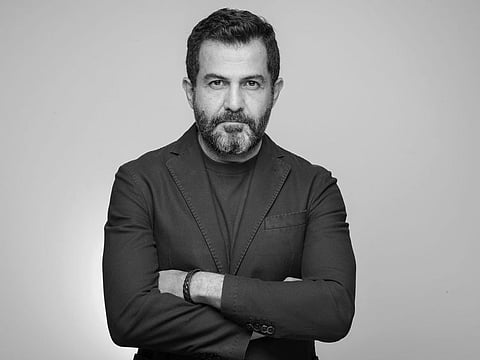For acclaimed Artist Mahmoud Obaidi, art is a tool of justice
Obaidi discusses how his work reflects themes such as immigration and aftermath of war

Iraqi-Canadian artist Mahmoud Obaidi doesn’t shy away from speaking the truth about sensitive subjects such as war and the destruction of one’s homeland. The Kurator interview with Obaidi touches upon themes of displacement and genocide and other difficult social issues, on occasion of his new exhibition Mosquito Effect on show at MEEM Gallery until the 30th of May.
Can you tell us how you first became interested in art?
I think it ran in my family. My mother was a writer, and my brother is an artist as well. Since I was a kid, I found myself returning to art after every stage of my life.
Your work explores themes of identity, displacement, and migration. What draws you to these themes, and how do you approach them in your art?
I'm an immigrant myself- I left my homeland, Iraq, in 1991, trying to find a place in this world to call home. I relate to these themes on a personal level, and often find myself subconsciously integrating them within my works. For example, Compact Home was a project I created in 2003, which I used to navigate the concept of 'home' and it's unattainability to me- I did not consciously approach this theme in my art, it was simply a byproduct of my situation at the time.
Your art includes a range of mediums, from painting and drawing to sculpture and installation. How do you decide which medium to use for a particular project, and how do you approach the creative process differently for each medium?
The concept of the project leads me to choose the medium- I may look at the historical or cultural contexts in order to decide on a medium that best reflects it.
Your art has been exhibited in many countries, including the United States, Germany, and Japan. How do you see your work resonating with different audiences in different parts of the world?
I feel as if despite the differences between the audiences, there is always a link or sense of relatability that can be found in my work. For example, in the Mosquito Effect project, I navigated the displacement of Native Americans, which I later linked with the situation in Palestine and Iraq.
You have also worked as a curator and arts organizer - how do you balance your own artistic practice with your work supporting and promoting other artists?
I love to curate shows for other artists, as it allows for me to develop my own skills.
Your work often addresses political and social issues, particularly the impact of war and conflict on individuals and communities. How do you see your art contributing to conversations around these issues, and what do you hope people take away from your work?
Art not only transcends language but is a tool that has been used for documentation in all of human history. I feel that it is my duty to document the truth and shed light of injustice, and hope that people who view my art are able to see this as well.
What upcoming projects are you working on, and what can we expect to see from you in the future?
I have no idea. I usually work intensely for a year or two, then take a year long break dedicated to thinking.
Sign up for the Daily Briefing
Get the latest news and updates straight to your inbox



